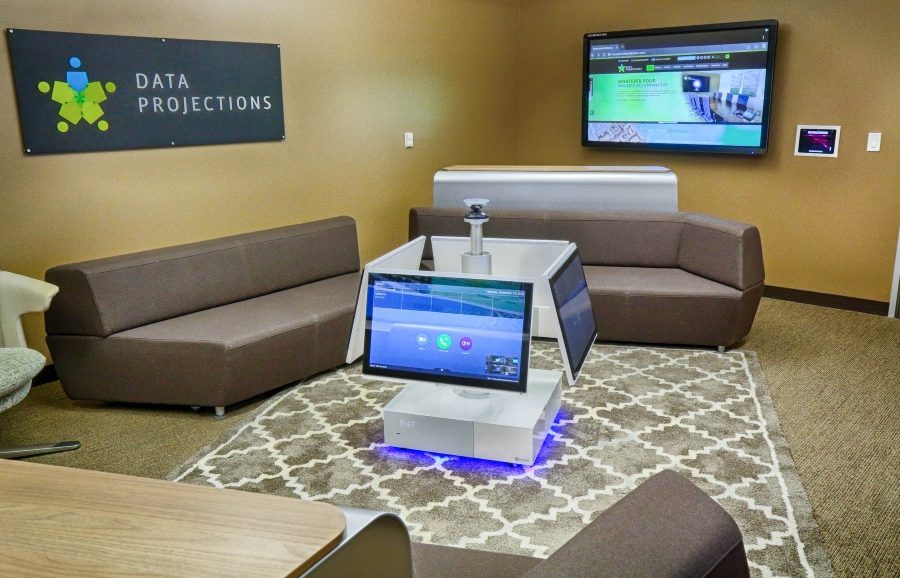Is there a difference between AV consultants and integrators?
In the AV industry, the proper term for a company that builds, installs, configures and maintains AV solutions is “integrator.” No matter the scale of your AV project, an integrator is who you will need to ensure it is executed properly. While many AV consultants are talented experts that can provide needed perspective and guidance, an integrator also provides consultation, on top of the more technically demanding aspects of the job.What services does an AV integrator in Houston offer?
An integrator provides much more than just consultation, though that is a critical part of the process. Integrators provide consultation services to Houston clients, much like an AV expert who is strictly a consultant would. However, on top of detailed planning, an integrator can do the following:1. Place and install all AV equipment – Once an integrator has a plan in place, they will move forward on acquiring the needed technology for their client, verify that it is in good working order and install the technology. This may seem like a simple task, but many AV integration projects require extensive effort in running cable, ensuring all equipment is mounted to code and properly integrating the equipment into the room. Some clients prefer AV equipment to be accessible and in view only some of the time, and this requires a level of AV expertise that only integrators possess.
2. Properly configure the equipment – Integrators have to integrate many pieces of technology into a cohesive whole. Displays, cameras, speakers, microphones, conferencing equipment, control systems, processors and the like all have to work together—and that’s just the hardware. AV experts can guide their clients in selecting software as well, with some focus on inter-compatibility. An AV solution that has software and hardware working together is one that will meet and often exceed the client’s needs.
3. Help clients get accustomed with their new technology – Reputable integrators in Houston know that their job is far from over after the equipment is installed and configured. AV technology is sophisticated, and though it is mostly designed for people with basic technical skills, it’s still a challenge for many to get used to it. That’s why successful integrators are willing to train employees on the new solution. Some integrators even have special facilities where they can introduce people to AV technology and provide a controlled environment for training purposes.
There is a widely observed phenomenon involving businesses and new technology. If the technology is enthusiastically adopted by the company’s workers from the outset, it is much more likely to remain in use years after it is integrated into the company’s workflow.
4. Maintain the system well into the future – AV solutions must be maintained frequently to ensure they are performing optimally. Equipment like displays, control systems and conferencing equipment are constantly interfaced with, which means they are often reconfigured or handled roughly. Integrators know what stresses an AV system is likely to experience during day to day operation, which means they can correct any issues long before they cause downtime.
Ideally, an integrator should offer a maintenance plan that specifies exactly what maintenance services the integrator will provide and when they will provide them. Such a plan should cover everything from scheduled, basic maintenance and performance monitoring, to rapid response options should a critical piece of equipment experience a major failure.
Why Houston businesses and organizations need an AV integrator
AV solutions are quickly becoming a “must have” for many industries, schools and institutions. This is especially true in a city like Houston, where businesses must appeal to a diverse group of people, and where organizations must separate themselves from many competitors. Further, businesses and schools must control costs, and AV solutions can help with this, as well. Specifically, this is what AV technology brings to Houston area clients:1. A branding boost – Houston is a haven for restaurants, bars and various hangouts designed to appeal to younger adults. AV technology is particularly effective among younger consumers, as young adults have grown up with and trust modern technology. A set of vivid digital displays can deliver upbeat, attractive messaging. Digital signage can create desire for a product, and provide a layer of interactivity if the signage is configured with social media integration.
2. Stronger internal communication – All organizations could benefit from faster, more convenient communication between departments and decision makers. Audio and video conferencing technology is ideal for this purpose, as it can connect people and teams separated by hundreds or thousands of miles. With conferencing technology, businesses can achieve considerable savings by controlling travel costs and by keeping people out of long, less productive meetings.
Conferencing technology is also effective at linking businesses with potential clients and partners, both of which can drive growth.
3. A better learning environment – Companies must train their new hires. Educators are always looking for a way to keep students engaged and learning. AV solutions can facilitate both. Interactive displays make lesson delivery much more interesting, and allow students or trainees to interface directly with lesson material. Interactive displays can also help with classrooms moving to a BYOD, or bring-your-own-device, model. Improved audio technology and document cameras can also help improve lesson delivery.
The AV industry is developing in exciting ways, offering technology that can greatly improve the way organizations communicate, learn and adapt. AV integrators and consultants are the gatekeepers to this technology, providing the needed knowledge, manpower and equipment for any AV project.


